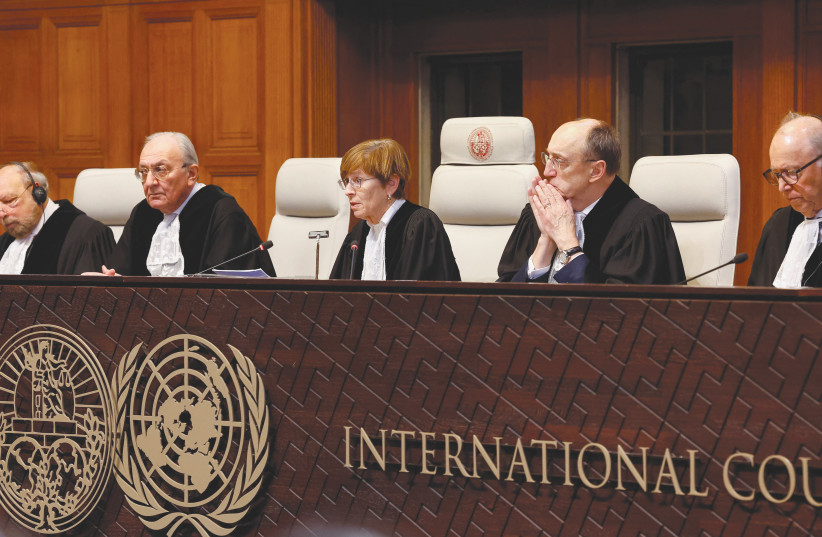Lebanese Judge Nawaf Salam was elected by his peers to be the new president of the International Court of Justice, where he will be expected to serve a term of 3 years, according to a press release published by the Hague on Tuesday.
Salam had been a member of the court since February 2018 and had previously been employed as an Ambassador and Permanent Representative of Lebanon to the United Nations from 2007 until 2017.
Salam has a history of making anti-Israel statements and will now be presiding over the case launched by South Africa against Israel, in which it claims that the IDF is committing genocide in Gaza.
Anti-Israel statements by the new judge
In 2015, the now-president wrote, “Unhappy birthday to you, 48 years of occupation.” Months later, the Jewish News Syndicate reported that he wrote “Israel must stop violence and end occupation” and “Portraying the critics of Israel’s policies as antisemites is an attempt to intimidate and discredit them, which we reject.”

Salam has also advocated for Palestinian membership to the United Nations, which would mean recognition of a Palestinian state.
What is the International Court of Justice?
The ICJ is the judicial sector of the United Nations, established by the United Nations Charter in June 1945, which is composed of 15 judges.
The court claims to have two roles, “first, to settle, in accordance with international law, legal disputes submitted to it by States; and, second, to give advisory opinions on legal questions referred to it by duly authorized United Nations organs and agencies of the system.”
